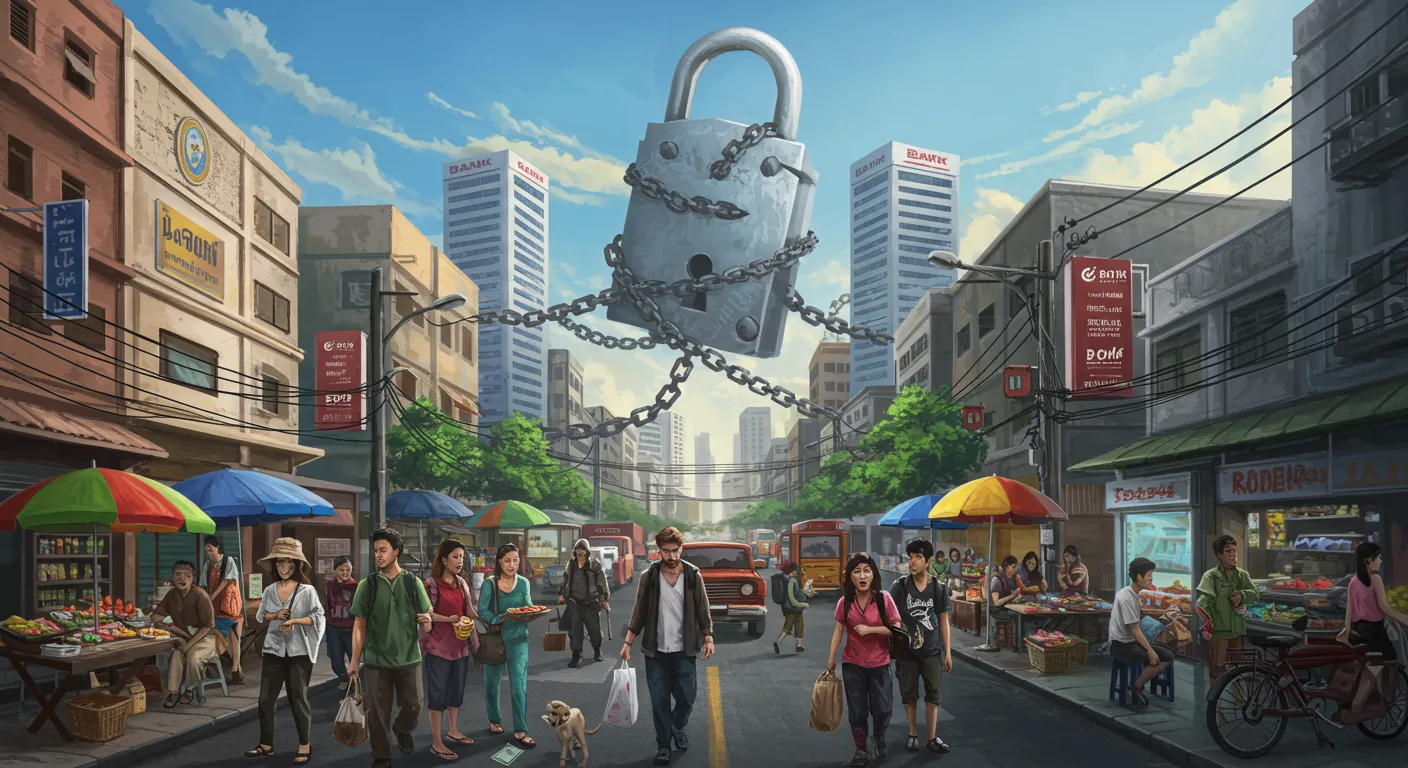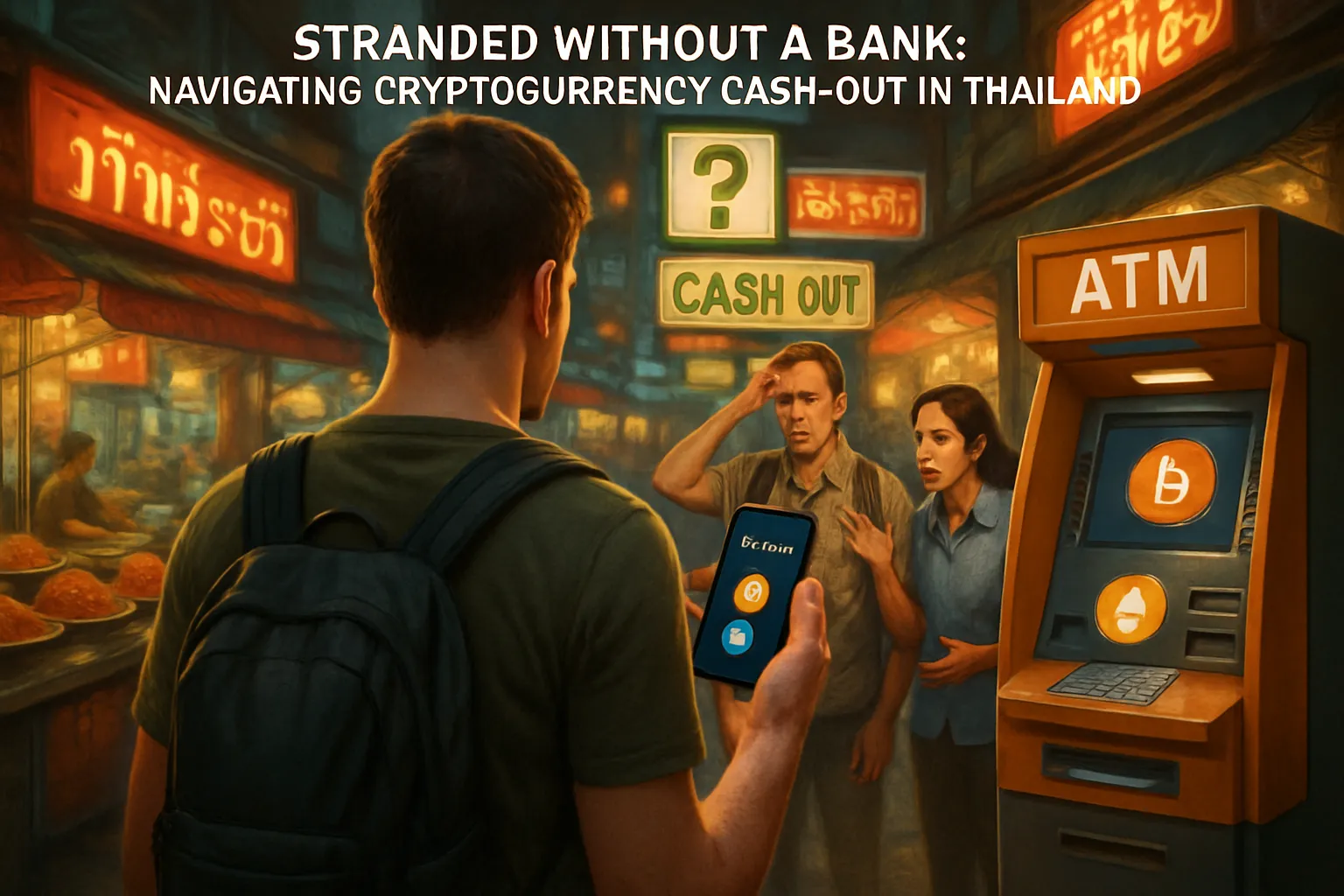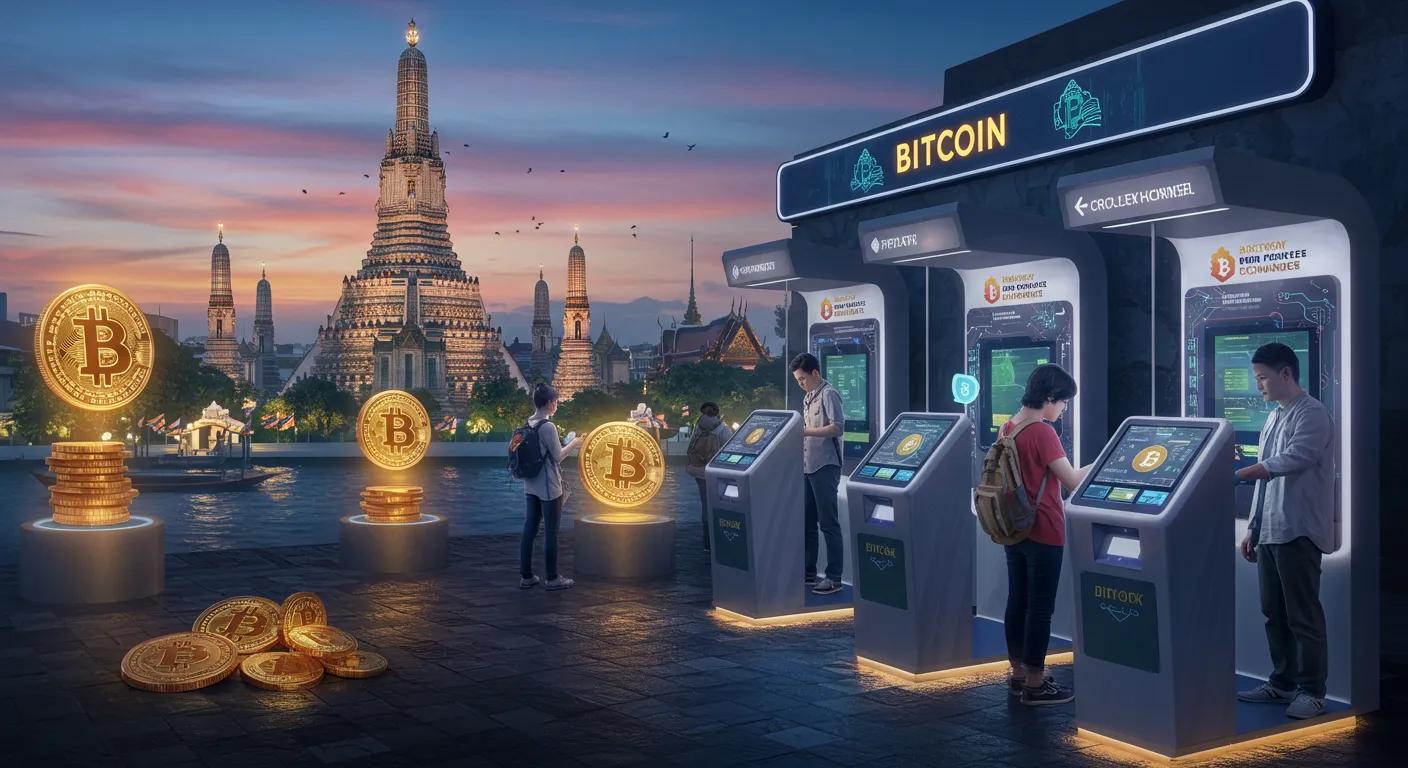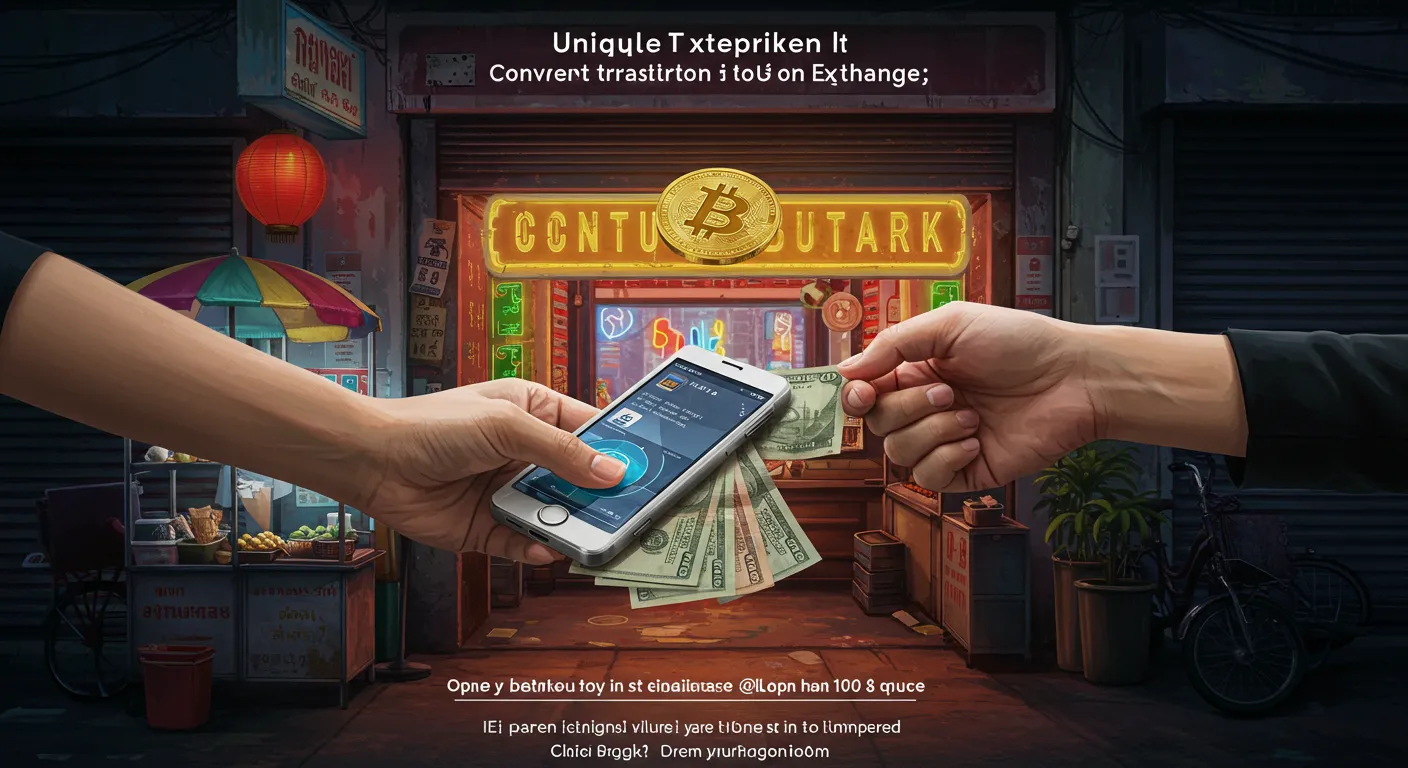Picture this: You’ve just landed in steamy Bangkok, ready for pad thai and adventure—only to find your shiny new bank card suddenly declined at a street food stall. Trust me, that’s not a hypothetical. I learned it the hard way myself last month, caught in the recent web of tough new Thai banking laws just as my tourist visa got stamped. Turns out, I wasn’t the only one squinting at bewildering new rules about bank accounts, visas, and seemingly random financial checks at immigration. There’s more to the story than you’ll hear on the news, so let’s dive into what’s really happening (and where you can still dodge a few curveballs with the right info).
When Your ATM Card Freezes: Real Stories from the Newly Regulated Thailand
Imagine this: You’re in Thailand, enjoying a bowl of noodles at a street market, and you reach for your bank card to pay. Suddenly, it’s declined. You try again—nothing. That’s when you realize your ATM card has been frozen. If this sounds like a nightmare, you’re not alone. Since May 2024, Thailand’s banking regulations have changed dramatically, and foreigners are feeling the impact in real time.
It started for many with no warning. My own experience was a wake-up call. I was on vacation, relying on my Bangkok Bank account for daily expenses. Out of nowhere, my card stopped working. No email, no SMS—just a frozen account. When I visited the branch, staff told me new Bangkok Bank requirements meant my tourist visa status no longer qualified me to hold an account. I wasn’t alone. In the waiting area, I met a Russian traveler and a retiree from Australia, both facing the same issue: sudden account freezing with little explanation.
Stories like these are everywhere. Research shows that after May 1, 2024, closures and freezes on foreign accounts surged, especially for those without long-term visas. Russian and Chinese visitors were hit hardest, but the rules applied broadly. Even non-tourist visa holders—like those on education or business visas—reported surprise account restrictions. The new Thailand Banking Regulations left many scrambling.
Bangkok Bank has adopted stricter requirements for opening new, deposit accounts in Thailand for foreign customers affecting tourists and potentially any expats who do not hold long term visas.
Why the sudden crackdown? Officially, it’s about security. As one bank statement explained, “The tighter conditions align with Thailand's efforts to improve cybersecurity and combat financial scams.” There’s also growing pressure to comply with international anti-money laundering rules. But on the ground, the impact is personal. Rent payments, grocery shopping, and even medical emergencies became complicated overnight. Some expats found themselves unable to access funds for days, while tourists were left with no way to pay for hotels or transport.
The rumor mill is spinning, too. Some travelers believe the rules are only temporary, or that certain nationalities are being targeted. Others think it’s just another example of unpredictable Thai bureaucracy. But research indicates the changes are real and likely to stick, with other banks considering similar measures.
So what can you do if your account is frozen? Many are turning to creative workarounds. Cash is king again, but not always practical. E-wallets help, but require setup and local phone numbers. That’s where services like Crypto2Cash.in.th come in. This platform allows you to exchange crypto for Thai baht in just 30-60 minutes—no Thai bank account needed. For many, it’s become a lifeline, especially as tourist visa restrictions now ban most new account openings.
In short, if you’re traveling or living in Thailand, keep a close eye on your bank account. The new Bangkok Bank requirements and Thailand Banking Regulations are changing the game for foreigners, and being prepared is more important than ever.
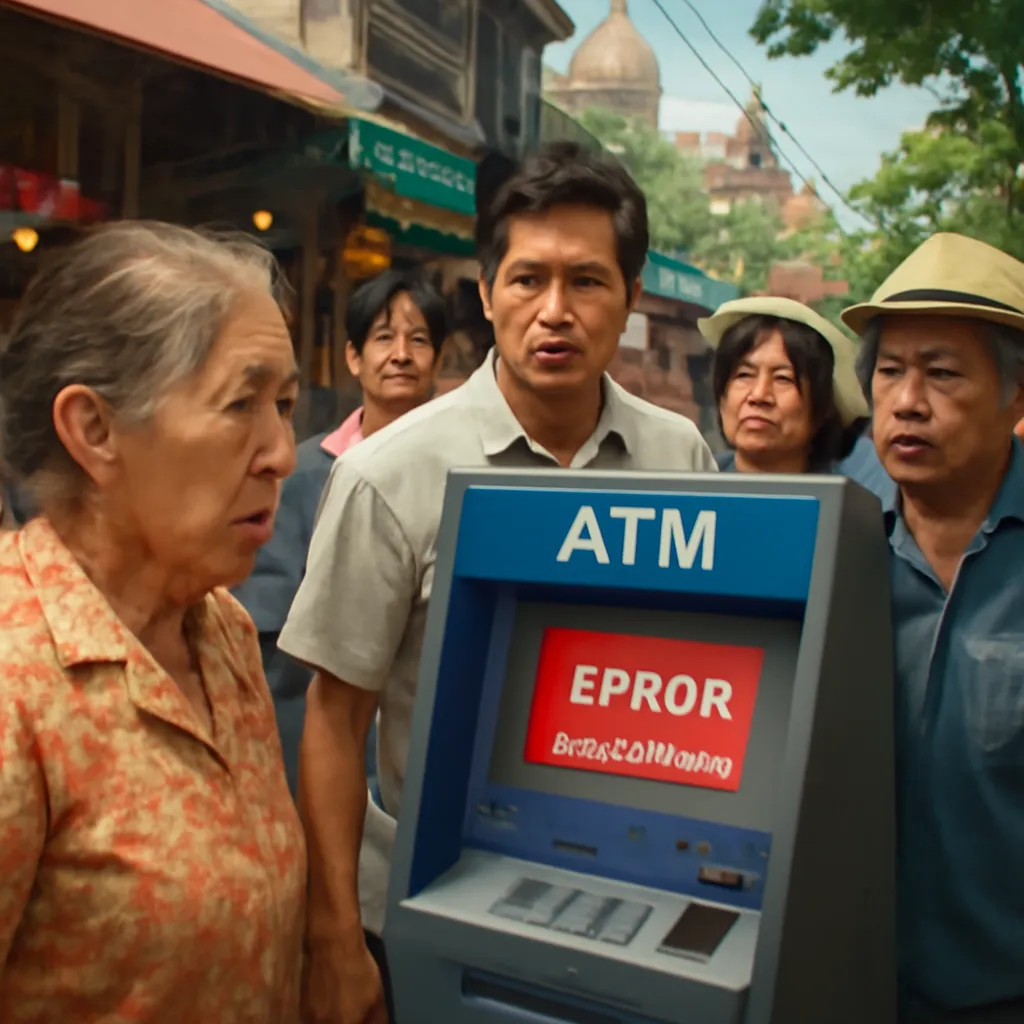
Behind the Curtain: Why Thailand Suddenly Cares About Your Visa and Your Money
Thailand’s recent banking crackdown has left many foreigners scratching their heads. If you’re planning to live, work, or even just travel in Thailand, you’ve probably noticed the sudden shift in how banks and immigration treat your visa and your money. But what’s really driving these changes? Let’s pull back the curtain on the new Foreigners Account Rules and see how Thailand Financial Regulations are reshaping life for expats and tourists alike.
The Backstory: Fraud, Scams, and the Hunt for ‘Mule Accounts’
It all starts with a surge in financial fraud. In recent years, Thailand has seen a sharp increase in scams and money laundering, much of it funneled through so-called mule accounts—bank accounts opened by foreigners and used to move illicit funds. This has put pressure on Thai banks, especially Bangkok Bank, to tighten their rules. Research shows that these stricter Immigration Financial Checks are directly tied to efforts to reduce fraud, scams, and money laundering.
International Pressure and Cybersecurity Measures
But it’s not just a local issue. International bodies have been urging Thailand to step up its cybersecurity measures and anti-money laundering (AML) efforts. In response, Thai banks and the government are now working together to make sure every bank account is linked to a SIM card registered in the account holder’s name. This new SIM-linked banking rule is designed to enforce personal identification, making it much harder for scammers to hide behind fake identities.
Banking Rules Now Tied to Immigration Enforcement
What’s really new—and what’s catching many foreigners off guard—is how Thailand Financial Regulations are now directly tied to immigration. Since May 1, 2024, opening a Thai bank account as a foreigner has become much tougher. Unless you have a long-term visa, are married to a Thai national, or own property in Thailand, you’re likely out of luck. Tourists, even those with valid tourist visas, are no longer eligible to open new accounts. Existing accounts held by foreigners without long-term visas may face restrictions or even closures.
Watch-Lists, Blacklist Checks, and Border Scrutiny
It doesn’t stop at the banks. Immigration authorities are stepping up their game too. The national police chief has ordered immigration police to “step up the screening process for foreign arrivals.” As you enter Thailand, your data is now matched with information from foreign embassies to see if you’re on any watch lists or blacklists. As one official put it:
National police chief has ordered immigration police to step up the screening process for foreign arrivals.
Travelers data will then be matched with data from foreign embassies to determine whether the person is on a watch list or a blacklist.
There’s also a new focus on financial checks at the border. Officials may ask if you have “enough money” in your bank account to support your stay, though there’s no clear public info on what “enough” actually means. This ambiguity leaves many travelers uneasy, especially as tourism numbers—particularly from China—have dropped sharply.
Crime Control or Tourism Deterrent?
So, is this all about fighting crime, or is there a tourism angle? Some observers wonder if these tough new Foreigners Account Rules and Immigration Financial Checks might be backfiring, making Thailand less attractive to visitors and expats. For now, one thing is clear: your visa status and your money are under more scrutiny than ever before.
‘Enough Money’—The Rule Nobody Can Explain (And Why It Matters for Tourists)
If you’re planning a trip to Thailand, you’ve probably heard whispers about Immigration Financial Checks at the border. Maybe you’ve read stories online or watched a vlogger breeze through customs without a hitch. But lately, things have changed—and not everyone is getting through so easily. The rule about having “enough money” has always existed, but as of May 2024, enforcement has ramped up in a way that’s left many travelers confused and anxious.
Spot Checks and Sudden Scrutiny
Immigration officers now routinely ask some arrivals to show proof of funds. There’s no official announcement about how much is considered enough, and that’s where the uncertainty begins. According to a recent Bangkok Post report, the national police chief has ordered stricter screening for foreign arrivals. This isn’t just about checking your passport. As one source explains,
Travelers data will then be matched with data from foreign embassies to determine whether the person is on a watch list or a blacklist.
But it’s not just about security. Officers are also checking your bank account, or at least asking if you can prove you have enough money to support your stay. The problem? No one can tell you exactly what “enough” means.
Ambiguity and Anxiety: No Clear Threshold
There’s no published minimum for these Tourist Visa Restrictions. Some travelers report being asked to show cash, bank statements, or screenshots from digital wallets. Others, like a vlogger who entered on May 4, 2024, say they weren’t asked anything at all:
Actually, I got here on May fourth...I went through customs. I went through immigration without any problems. They didn't ask me about my finances or anything like that.
This randomness is what makes Foreigners Financial Checks so stressful. You might be asked for proof, or you might not. There’s no pattern—sometimes it seems linked to your appearance, visa type, or just pure chance.
Real Consequences: Denied Entry for Insufficient Funds
While some glide through, others aren’t so lucky. There are firsthand accounts of travelers being denied entry because they couldn’t show enough money. One story making the rounds:
I just saw a vlog the other day from a foreigner that came in with his girlfriend, and his girlfriend was denied entry because she didn't have enough money in her bank account.
It’s not just rumor. Anonymous reports from airports confirm that couples and solo travelers alike have been turned away, often with little explanation.
What Works? Tactics for Travelers
So what can you do? There’s no official guideline, but here’s what’s worked for others recently:
- Bring printed bank statements or account screenshots showing recent balances.
- Use digital banking apps to display available funds if asked.
- Carry some cash as a backup, though officials prefer to see electronic proof.
Ultimately, the lack of transparency around Thailand Banking Regulations means you should be prepared for anything. Research shows that the unpredictability of these checks is causing genuine anxiety among tourists, especially those unaware of the new enforcement push. Until there’s clearer guidance, the best advice is to have your financial proof ready—just in case you’re the one they ask.

Who’s Hit the Hardest? Visa Types, Rumors, and the Shifting Ground for Expats
If you’re a foreigner living in Thailand or planning to stay for a while, you’ve probably heard about the recent banking crackdown. The new Bangkok Bank requirements have left many expats scrambling, especially those on short-term stays. But who’s really feeling the impact, and what does it mean for your ability to open or keep a Thai bank account?
Tourist Visas and DTV Holders: The New “No-Go” Zone
Let’s start with the most affected group: those on tourist visas and the newer Destination Thailand Visa (DTV). These visas were once seen as flexible options for digital nomads and long-stay tourists. Now, research shows that Bangkok Bank is explicitly blocking account openings for anyone on these visas. If you already have an account, there’s a real risk it could be frozen or closed without warning.
If you are here on a DTV destination Thailand visa, that's considered a tourist visa. So the rumors I'm hearing is that they're locking up those bank accounts too or not allowing foreigners to open a bank account if you're on a DTV visa.
This isn’t just rumor. Expats are reporting sudden freezes, denied new accounts, and a lot of confusion. The rules seem to arrive overnight and aren’t always enforced the same way in every branch or city. If you’re on a tourist or DTV visa, you’re now in the highest risk category for foreigners banking issues.
Education Visas: No Longer a Safe Bet
For years, the education visa was a popular workaround. You could enroll in a language school, get a one-year visa, and open a bank account. But that loophole is closing fast. Banks, especially Bangkok Bank, are now scrutinizing education visa holders much more closely. Some accounts are being frozen; others are being denied at the application stage. The days of using student status as a backdoor to long-term banking are fading, and there’s no official word on how many accounts have been affected.
Long-Term and Retirement Visas: Still Open, But for How Long?
If you hold a long-term visa, retirement visa, or are married to a Thai national, you’re in a safer position—for now. Bangkok Bank requirements have shifted to favor those with what they call a “sufficient connection” to Thailand. This usually means a long-term visa, marriage, or property ownership. But even here, the ground is shifting. Expats report both successful and failed attempts to open or unfreeze accounts, with no clear pattern. What counts as “sufficient connection” isn’t always clear, and rules can change overnight.
Uncertainty and Rumors: The New Normal
One thing is certain: unpredictability. New foreigners account rules seem to appear suddenly, and enforcement can vary wildly from branch to branch. Some expats have managed to keep their accounts open despite being on short-term visas, while others have lost access overnight. Planning your finances as a foreigner in Thailand has never been more complicated.
In summary, if you’re on a tourist or DTV visa, expect the toughest road ahead. Education visas are no longer a guaranteed path to banking, and even long-term strategies aren’t immune to change. The only constant right now is uncertainty.
Thailand’s Regulatory Tightrope: Keeping Out Scammers, but Are Tourists Paying the Price?
If you’ve tried to open a bank account in Thailand lately, you’ve probably run into some unexpected roadblocks. The new Thailand Banking Regulations are making headlines, but what’s really going on behind the scenes? Thai banks and authorities say these changes are all about Financial Fraud Prevention—especially cracking down on so-called mule accounts used by scammers. On paper, it sounds reasonable. In practice, though, you might be wondering if these rules are actually keeping out criminals, or just making life harder for genuine tourists and expats.
The government’s position is clear: Thailand wants to align with global anti-money laundering (AML) standards. As one official statement puts it,
The changes align with Thailand's efforts to improve cybersecurity and comply with international anti-money laundering obligations.This means stricter requirements for foreigners opening accounts. Unless you have a long-term visa, own property, or are married to a Thai national, you’re likely out of luck at most banks. Even existing accounts are being reviewed, and some foreigners have found their cards suddenly blocked or their accounts frozen—especially in popular expat hubs like Phuket and Pattaya.
But here’s where things get complicated. The crackdown is supposed to target fraud, yet many tourists and expats say they’re the ones feeling the squeeze. You might have heard stories of travelers being asked for extra documents, or even being turned away based on how they look or what passport they hold. There’s a growing sense that these rules, while well-intentioned, are hitting the wrong people. As rumors swirl, some wonder if certain nationalities are being unfairly targeted—though it’s hard to get clear answers.
Meanwhile, Thailand’s tourism numbers are taking a hit. Research shows a significant drop in Chinese visitors in 2024, with some local sources saying it’s “way down from previous years.” One industry observer put it bluntly:
Thailand's tourism is down significantly, especially Chinese tourism. It's way down from previous years. So they may be biting the hand that feeds them, so to speak.The implication? By making banking harder for visitors, Thailand could be driving away the very people who fuel its economy.
All of this has led to a surge in alternative finance solutions. More travelers are turning to services like Crypto2Cash.in.th—a crypto-to-cash exchange that promises a stress-free experience in just 30-60 minutes. It’s not just about convenience; it’s about avoiding the headaches and uncertainty that now come with traditional banking. Online forums are buzzing with tips for sidestepping Bangkok Bank Rules and other hurdles, and the appetite for these workarounds seems to be growing.
So, what’s next? If you’re planning a trip or a longer stay in Thailand, it’s wise to keep an eye on these evolving regulations. The crackdown could get stricter before it relaxes, and the landscape is shifting fast. For now, flexibility—and a backup plan—are more important than ever.

Wild Cards: Creative Strategies for Surviving (and Thriving) in Thailand’s New Banking Landscape
If you’re living in Thailand or planning a visit, you’ve probably heard the buzz about new Thailand Banking Regulations and the sudden freeze on foreigner bank accounts. The reality is, things are changing fast. Bangkok Bank Rules are now tighter than ever, especially for those on tourist or short-term visas. Many expats and travelers are finding themselves locked out of traditional banking, or worse—having their accounts frozen with little warning. So, how do you keep your money moving and stay ahead in this unpredictable climate?
The answer, as research shows, is flexibility. Expats and tourists are getting creative, pooling tips and tricks to work around official loopholes. The days of relying on a single debit card or one local bank account are over. Instead, you’ll want to pack multiple options: e-wallets, foreign debit cards, and even online banks. Each has its own quirks, but together they form a safety net when the rules shift overnight.
Community is your best ally. WhatsApp and Telegram groups have become lifelines, with members swapping real-time advice and sharing the latest workarounds. There’s no official playbook, but these forums are full of up-to-date stories—like how someone managed a cash transfer when their card was blocked, or which ATMs are still friendly to foreign cards. The rise of these groups reflects just how mainstream non-bank solutions have become in the expat community.
For those willing to try something unconventional, digital assets are opening new doors. Some expats have started using crypto for in-person cash exchanges, sidestepping the need for a Thai bank account altogether. Services like Crypto2Cash.in.th are gaining traction, offering a 30–60 minute crypto-to-baht solution—no local bank required. As one expat put it,
Creative workarounds: using cash, e-wallets, and (Schleichwerbung incoming!) Crypto2Cash.in.th for quick fiat access without a Thai bank account.It’s not just about convenience; it’s about survival in a system that can change the rules without notice.
Of course, some old-school advice still holds true. Always carry a bit of extra cash, just in case digital systems go down or you hit an unexpected roadblock. And stay connected. The best way to keep up with Foreigners Banking Issues is to follow travel and expat forums, social channels, and official news sources. Regulations can shift overnight, and preparedness is key.
In the end, thriving in Thailand’s new banking landscape means staying nimble, informed, and ready to adapt. Whether you’re swapping tips in a Telegram group or testing out the latest cash-out service, your best defense is a well-stocked toolkit and a strong network. The rules may keep changing, but with the right strategies, you can keep your financial life running smoothly—no matter what surprises the next regulation brings.
TL;DR: Thailand’s clampdown on foreigner banking and entry rules has cranked up uncertainty, especially for tourists and expats. If you need quick solutions, consider services like Crypto2Cash.in.th, which sidestep traditional banking pain points. The key: stay informed and flexible.
